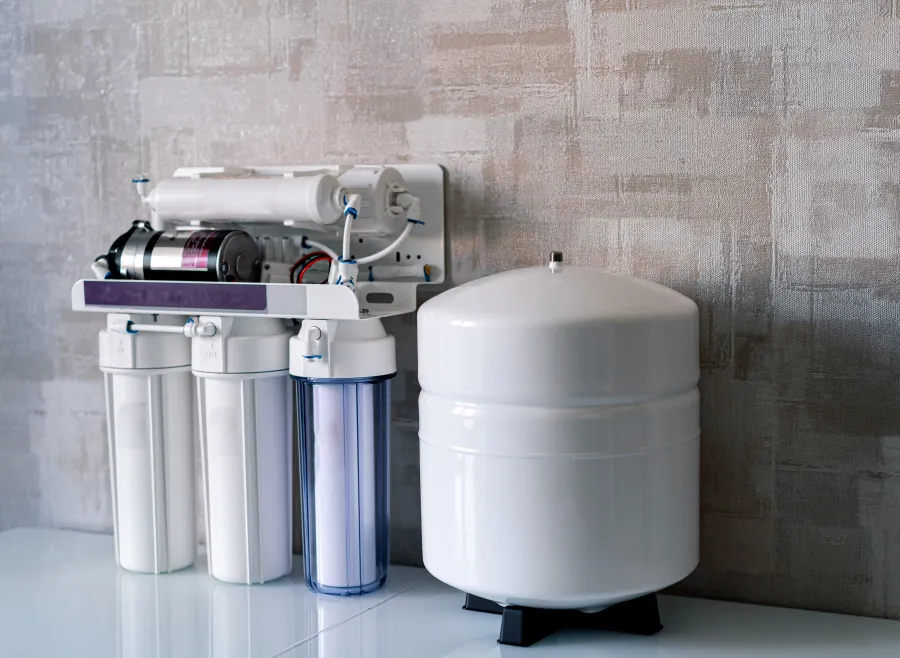Water is one of the most essential resources for human life. From drinking and cooking to bathing and cleaning, water touches nearly every aspect of our daily routines. Yet, despite its importance, many households still rely on untreated or partially filtered water that may carry impurities, contaminants, and harmful chemicals. This is where the concept of whole home water filtration comes into play. It offers a comprehensive solution to ensure clean, safe, and high-quality water flows from every tap in your house.
In this article, we’ll explore why a whole home water filtration system is a smart investment, how it works, the types of contaminants it can remove, and what benefits it offers beyond just clean drinking water. Whether you’re a homeowner or renter looking to improve your water quality, this deep dive into whole house filtration will help you make an informed decision.
The Growing Need for Cleaner Water
Municipal water treatment plants are responsible for cleaning and distributing water to homes, but that doesn’t mean your tap water is completely free from contaminants. Even after treatment, water can pick up pollutants from aging pipelines, corrosion, or environmental runoff. In some cases, this can lead to water containing lead, chlorine, pesticides, herbicides, bacteria, and even pharmaceutical residues.
Bottled water and small under-sink filters offer partial solutions, but they are often limited in scope and don’t address the root of the problem—ensuring every water source in your home is delivering safe and clean water.
What Is a Whole Home Water Filtration System?
A whole home water filtration system, also known as a point-of-entry (POE) system, is designed to filter all the water that enters your home. Installed at the main water line, it treats water before it reaches any faucet, showerhead, washing machine, or appliance. Unlike point-of-use filters, which only treat water at a specific location, these systems ensure every drop of water used in your home is filtered.
There are different types of whole home water filtration systems, each targeting specific contaminants, including:
- Sediment Filters: These remove large particles like sand, silt, and rust.
- Activated Carbon Filters: These are effective at removing chlorine, volatile organic compounds (VOCs), and bad odors or tastes.
- UV Filters: These destroy bacteria and viruses.
- Water Softeners: Though not technically filters, they help remove hard minerals like calcium and magnesium.
Many modern systems are hybrid models, combining several of these technologies for a comprehensive solution.
Benefits of Installing a Whole Home Water Filtration System
1. Healthier Drinking and Cooking Water
While most people think of drinking water when they hear about filtration, water used for cooking is just as important. Boiling pasta, making coffee, or washing vegetables with contaminated water can pose health risks. With a whole home system, you know that the water in your kitchen is as clean as possible, directly supporting your family’s health.
2. Safe Showers and Baths
Your skin is your body’s largest organ, and it absorbs water during showers and baths. Chlorine and other chemicals in unfiltered water can dry out skin, trigger allergic reactions, or even exacerbate conditions like eczema. A whole home water filtration system ensures that even the water you bathe in is free from harsh chemicals.
3. Prolonged Appliance Life
Appliances like dishwashers, washing machines, water heaters, and refrigerators last longer when fed with clean water. Sediment, minerals, and scale buildup can wear down internal components and reduce energy efficiency. Clean water helps keep appliances running smoothly and reduces maintenance costs.
4. Cleaner Laundry and Dishes
Filtered water can dramatically improve the effectiveness of soaps and detergents. Clothes come out softer and retain color better, while dishes appear cleaner with fewer spots or residue.
5. Eco-Friendly and Cost-Effective
Relying on bottled water isn’t just expensive—it’s also harmful to the environment due to plastic waste. A whole home system eliminates the need for bottled water and reduces plastic consumption. Over time, this adds up to significant cost savings and a smaller environmental footprint.
How Does It Work?
The exact setup varies depending on the model and manufacturer, but most whole home water filtration systems follow a similar process:
- Pre-Filtration: Water passes through a sediment filter that captures large particles.
- Main Filtration: The water then flows through one or more media filters (such as activated carbon or catalytic carbon), which remove chlorine, pesticides, and chemical contaminants.
- Optional UV Filter: Some systems include a UV light filter that neutralizes bacteria, viruses, and protozoa.
- Final Output: The clean, filtered water is distributed to every outlet in the home.
Installation is typically done near the main water line entry point, often in a basement or utility room. While some systems require professional installation, many are designed for DIY-savvy homeowners.
Key Factors to Consider When Choosing a System
When selecting a filtration system for your home, several important considerations should guide your choice:
- Water Quality: Start with a water test to understand what contaminants are present. This helps you choose the right type of filter.
- Flow Rate: A higher flow rate means less chance of reduced water pressure. Make sure the system you choose can handle your household’s water demands.
- Filter Lifespan: Longer-lasting filters require less maintenance but may be more expensive upfront.
- Certification: Look for systems certified by NSF or the Water Quality Association (WQA) to ensure performance claims are verified.
- Cost: Beyond the initial purchase, factor in the cost of replacement filters and any necessary maintenance.
Common Misconceptions
“I Only Need a Filter for Drinking Water.”
This is a widespread belief, but not entirely accurate. While drinking clean water is crucial, other water uses—like bathing, washing dishes, and doing laundry—also benefit significantly from filtration. Skin irritation, appliance damage, and poor cleaning results can all be caused by unfiltered water.
“Municipal Water is Safe Enough.”
Though treated, municipal water can still contain contaminants picked up during transit through old or corroded pipes. A whole home water filtration system adds an extra layer of security and peace of mind.
“It’s Too Expensive and Complicated.”
While whole house systems do involve an upfront investment, they often pay for themselves over time through savings on bottled water, appliance repair, and medical costs related to waterborne illnesses. Many models are also user-friendly and require minimal maintenance.
The Long-Term Impact on Health and Home
Water is a foundational part of life, so investing in a system that guarantees clean, safe water across your entire home has far-reaching benefits. You protect your family from potential contaminants, extend the lifespan of your appliances, reduce your environmental impact, and enjoy better hygiene and comfort in your daily routines.
When you consider the number of ways water touches your life—morning showers, coffee brewing, cooking dinner, watering plants—it’s easy to see why having clean water throughout your home matters. A whole home water filtration provides a simple yet powerful way to take control of your water quality and invest in the long-term well-being of your household.
Final Thoughts
Whether you live in an area with hard water, are concerned about chlorine or lead, or just want better-tasting water, a whole house filtration system is a worthwhile solution. It takes the guesswork out of water safety and ensures consistent, high-quality water in every aspect of your life. As water quality concerns continue to grow, taking proactive steps now can prevent health risks and costly repairs down the line.
Clean water isn’t a luxury—it’s a necessity. And with a whole home water filtration system, it’s a standard you can maintain every single day.



































